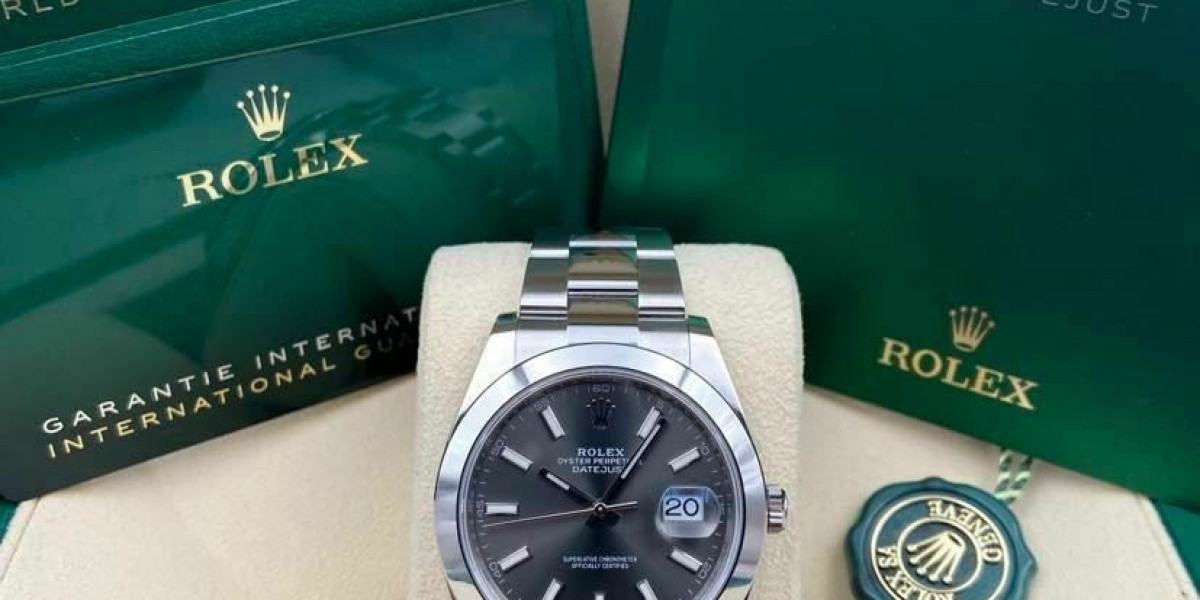Introduction
perfect replica Watches Rolex watches have long been a controversial topic on the planet of luxury items. Whereas some folks see them as a strategy to enjoy the aesthetics of a excessive-finish model with out the hefty worth tag, others argue that they're illegal and unethical. In this text, we'll explore the legality of replica Rolex watches, the potential penalties of proudly owning or selling them, and the moral implications of buying counterfeit goods.
The Legality of Replica Rolex Watches
In most countries, the production and sale of replica watches is illegal. Rolex, like many luxury brands, holds trademarks on its title, emblem, and designs, which means that anybody who tries to replicate these without permission is infringing on their intellectual property rights. This is why many replica watch sellers function in a authorized grey space, typically primarily based in international locations with lax enforcement of mental property legal guidelines.
In some jurisdictions, owning a replica watch is just not unlawful, however selling them can lead to legal troubles. For example, in the United States, selling counterfeit goods can lead to fines, lawsuits, and even criminal costs. The penalties could be even harsher for people caught selling giant portions of replica watches, as this could be thought of trafficking in counterfeit goods.
The Potential Penalties of Owning or Promoting Replica Rolex Watches
The implications of proudly owning or promoting replica Rolex watches can differ relying on the jurisdiction and the circumstances. In some cases, people caught with replica watches could merely be requested to surrender them and face no additional consequences. Nevertheless, in different instances, they may be topic to fines and even criminal fees.
For sellers of replica watches, the results could be more extreme. Along with fines and authorized charges, sellers may also face civil lawsuits from the manufacturers whose trademarks they have infringed. These lawsuits may end up in hefty damages and the lack of property. In extreme instances, sellers may even face jail time for trafficking in counterfeit items.
The ethical Implications of Buying Counterfeit Goods
Past the authorized penalties of proudly owning or selling replica Rolex watches, there are also ethical implications to think about. Buying counterfeit items supports an unlawful business that often exploits laborers and engages in other criminal actions. Counterfeit goods are often produced under poor working situations, with employees being paid low wages and subjected to long hours.
Along with the ethical issues about the production of counterfeit goods, there are also implications for the legit economy. Luxurious brands like Rolex invest significant sources in research and improvement, advertising and marketing, and quality management to supply their excessive-end merchandise. When customers buy replica watches as a substitute of authentic ones, they're depriving these manufacturers of income and potentially undermining their means to continue innovating and creating jobs.
Conclusion
In conclusion, replica Rolex watches are unlawful in most jurisdictions and might have serious penalties for both buyers and sellers. Past the legal implications, there are additionally ethical issues about supporting the counterfeit items industry and undermining legit companies. Whereas replica watches may seem like a tempting option to enjoy the aesthetics of luxury brands at a decrease price, the potential risks and penalties aren't worth it. As an alternative of purchasing counterfeit goods, shoppers ought to opt for genuine products and help the brands that put money into high quality, innovation, and ethical practices.


